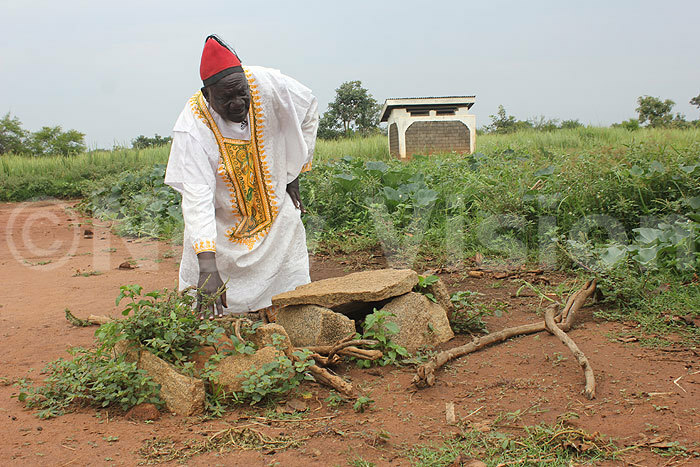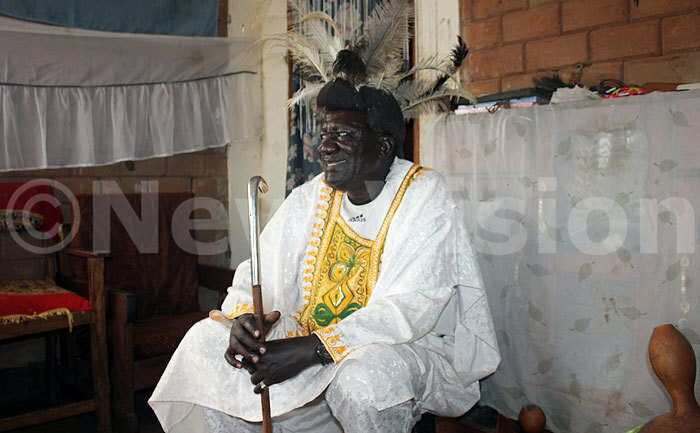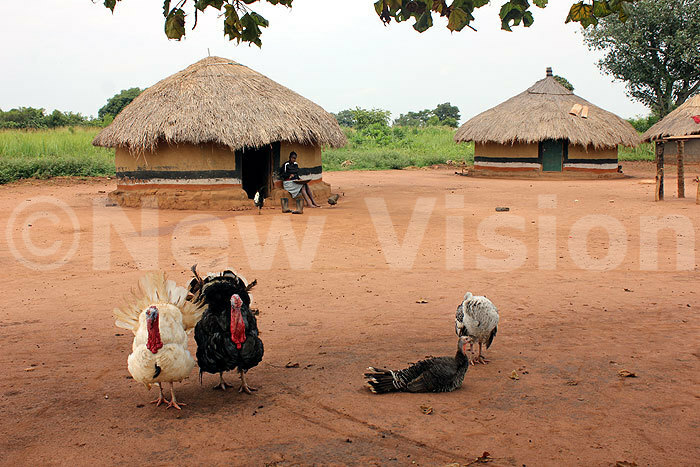Otinga, the Acholi leader who has fathered 75 children
Back in the day, the now retired army man was posted to different parts of the country.
You have been to Gulu to wine and dance in BJs or dine in Boma Hotel which has the only lift in northern Uganda. And you appreciate what you experienced, but if you have not met the lanky 64-year-old Rwot Otinga, you had better return for another visit.
Standing above six feet and tipping the scales at more than 100kg, Otinga is an encyclopedia-of-sorts of the Acholi culture.
"I have the blessing of our ancestors to make the Acholi productive," the tower of a man teasingly says at his palace overlooking Lamogi hills in a distance.
Why palace, you ask? Otinga is one of the 15 Rwots - tribal leaders - of the Acholi who were each built a palace by President Yoweri Museveni.
"The powers on those stones have enabled me to sire 75 children from 18 spouses from Toro, Bugishu, Buganda, West Nile and Teso," he points at more than four stones in his compound. He claims for him he was automatically empowered at birth.

In the palace, the stones are like a clinic where ‘patients are diagnosed' and ‘medicine' prescribed. This is done with the kind of attention a doctor in Mulago Hospital reserves for patients in a theater. Apparently Otinga inherited powers to heal from his ancestors, and at least thrice a week, people come to his home to seek advice on spiritual, sexual and even mental issues.
Some patients come to have their failing libidos reignited while others seek his advice on fertility-related matters like how to get twins. In fact, he also gets people who want to get a boy as in the Acholi culture, a boy is considered a fabric of continuity (heir).
So how did get to father so many kids? Back in the day, as a soldier, Otinga was posted to different parts of the country. And during such assignments, he got a new spouse and sired children with her. So you could say he has inlaws in different parts of the country.

By the way, the children have some things in common. They are tall and dark-skinned. Most of them laugh a lot but are short-tempered.
The retired army man, who was part of the Obote II army that toppled government when Tito Okello took over the reins at the helm, speaks with a baritone.
He preaches the qualities of a good Acholi which he says are being replaced by Western ways.
"We welcome even strangers to a meal or a feast," he relates. "These Bazungu (colonialists) killed our traditional dances. That is why our forefathers rebelled in what was called the Lamogi rebellion.
"You can imagine our ancestors had a jig for courting, another for going to war or celebrating a good harvest."

The expansive compound where some of Otinga's wives live. (Credit: Titus Kakembo)

One of his wives pictured here (right) with a daughter. (Credit: Titus Kakembo)
Still connected to his forefathers, Otinga says they communicate to him in dreams, through birds and wild animals.
"There are days when I get an antelope sitting by my door." In the last years, it has happened twice.
"I know straight away that they [ancestors] are not happy. I mobilize the tribe and resources are organized for a sacrificial lamb to be burned." Otinga says that is the one of the ways the Acholi were able to overcome the Lord's Resistance Army (LRA) war, climate change, floods and droughts.
The tribal chief was instrumental in the LRA-government peace talks at the peak of the gruesome conflict in Uganda.

Otinga's palace. (Credit: Titus Kakembo)
"We are not easy people," he boasts. "That is why our cousin Barack Obama is the first African American to rise to presidency in the US.
"Did you know that the Balamogi in Busoga are also a breakaway faction from mother Luo just like the Japadhola and the Jaramogis in Kenya? The names Balamogi was corrupted from the Luo Lamogi. That is why former vice president Specioza Kazibwe visits me regularly.
"I blessed her and she is getting the competitive job." Kazibwe is contesting for the post of African Union (AU) chairperson.
When it comes to food, Otinga says the cuisines in their midst can make a charging lion change its mind. They always come with sesame (simsim), groundnuts and vegetables. Smoked beef, fish and chicken are compulsory. But the table manners emphasize eating meat last.
"If you want to understand the Acholi better read Song of Lawino which was written by Okot P'Bitek," recommends Otinga. "It is the only way you will appreciate our way of life."